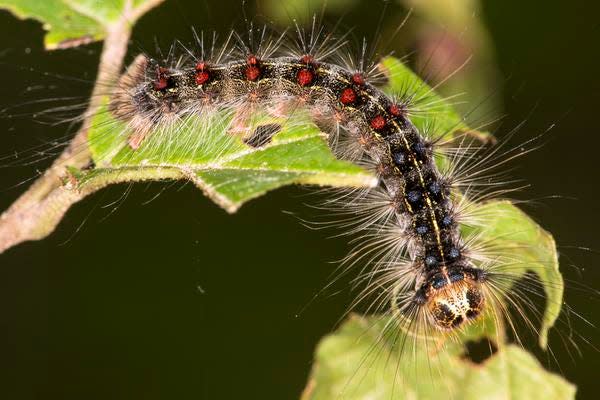Spongy moth caterpillar invades Freeport. Here's how experts plan to slow it down

FREEPORT — The spongy moth has invaded Freeport.
The Illinois Department of Agriculture notified the City of Freeport that the city has several hotspots of the invasive moth species Lymantria disbar, more commonly known as the spongy moth.
The caterpillars of the moths feed on leaves of hardwood trees and even defoliate entire forests, which weakens trees and could lead to dead trees.
It will devour almost anything leafy and green as it feeds on over 250 species of plants, but especially prefers oak and willow trees.
The Illinois Department of Agriculture's plan to curb the infestation calls for use of a naturally occurring bacterium known as BtK. The bacterium is considered an environmentally friendly alternative to pesticides and a spongy moth-specific pheromone that prevents males from breeding.
Related: Agriculture officials to discuss battle plan against spongy moth
The bacterium does not cause diseases in people, mammals, birds or fish, according to the Illinois Department of Agriculture. Other insects like ladybugs and honeybees are also not impacted.
The bacterium will be applied from a helicopter in three different areas in Freeport in mid-May. The area's include: Winneshiek Road to Illinois Highway 20, parts of the Willow Lake neighborhood and north of FHN Memorial Hospital.
Earlier this year, the department placed Winnebago and Boone counties on a quarantine list to help control the spread of the of spongy month. Under the quarantine, all nursery and lumber products must be inspected or certified before they can be transported out of the ten counties.
Stephenson County is not on the quarantine list at this time, according to the department.
Andy Carrigan: acarrigan@rrstar.com, @AndyCarriganRRS
This article originally appeared on Journal Standard: Experts take action after invasive moth species enters Freeport, IL
